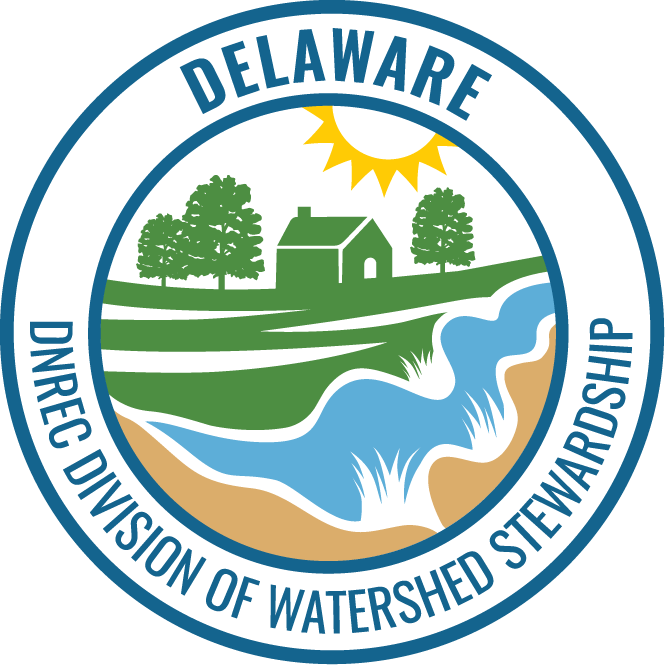
Facebook Twitter Instagram YouTube
Written on: December 22nd, 2025 in Education and Outreach, Natural Resources
By Olivia Allread, DNREC’s Wetland Monitoring and Assessment Program Sanctuary. All seek it, some search, and a lucky few can find it. As we know, these “sacred” spaces can come in many different forms and represent an untouched meaningfulness which is irreplaceable. One of a kind so to speak. At the far end of the […]
Written on: December 22nd, 2025 in Wetland Animals
By Alison Stouffer, DNREC’s Wetland Monitoring and Assessment Program If you are like me, you have likely been driving down a rural road, paddling through a tidal wetland, or going for a stroll through a state park and seen a furry, brown animal that had you doing a double take. That wasn’t a weird looking […]
Written on: September 24th, 2025 in Education and Outreach, Wetland Animals
By Olivia Allread, DNREC’s Wetland Monitoring and Assessment Program Anything new certainly can be intimidating. Sports, art mediums, cooking, recreational activities, you name it, they all have their own culture and lingo that some spend a lifetime mastering. Particularly in the natural resource world, certain topics or hobbies can sometimes come off as an exclusive […]
Written on: May 21st, 2025 in Education and Outreach
By Maddie Fox, Delaware Center for the Inland Bays The Delaware Center for the Inland Bays is a private nonprofit organization and one of 28 National Estuary Programs in the nation. Its creation was the culmination of 20 years of public participation and investigation into the declining water quality of the Inland Bays and the […]
Written on: May 21st, 2025 in Education and Outreach
By Olivia Allread, DNREC’s Wetland Monitoring and Assessment Program We know. This one sounds a little crazy. And by no means are we saying to throw on some boots and go out into the waist-deep mud to get yourself an afternoon snack. But, to add to all the other ways wetlands are wonderous, we wanted […]
Written on: March 19th, 2025 in Education and Outreach
By Olivia Allread, DNREC’s Wetland Monitoring and Assessment Program Nature has been engrained into storytelling basically since the beginning of time. In most cultures throughout history, the natural world has been featured in stories and books in many ways – a place of mystery, a pathway of self-discovery, foundations of peace and rest, even a […]
Written on: March 19th, 2025 in Education and Outreach, Natural Resources
By Laura Scharle, Delmarva Trails and Waterways and Scharle Outdoor Recreation Picture this. It’s spring and the weather forecast for the weekend is looking like it’s going to be beautiful. You and your family are deciding how to spend your time outside enjoying the sunshine and mild temperatures. A bike ride, a trip to the […]
Written on: December 11th, 2024 in Education and Outreach, Natural Resources
By Jana Savini, Coastal Collaboration Coordinator, Partnership for the Delaware Estuary and RASCL Coordinator The Delaware Resilient and Sustainable Communities League (RASCL) is a collaborative network of state agencies, nonprofits, and academic institutions that are dedicated to enhancing the resilience and sustainability of Delaware communities. By addressing climate challenges and capacity limitations, RASCL brings partners […]
Written on: July 22nd, 2024 in Education and Outreach, Natural Resources
By Olivia Allread, DNREC’s Wetland Monitoring and Assessment Program Get your gloves out and your hoses turned on, we’re going to the garden to get to know wetlands in this blog installment. Now the hobby of gardening may seem like a daunting task, and taking care of plants may seem even more challenging to the […]
Written on: September 22nd, 2023 in Education and Outreach, Natural Resources
By Olivia Allread, DNREC’s Wetland Monitoring and Assessment Program Magical forest, walking trees, mangals, snorkeling roots – this habitat can be called by many names. With a worldwide distribution in tropical to warm temperature latitudes, mangrove forests are not only incredible ecosystems, but a key player in climate resiliency and human livelihood. If you’ve been […]